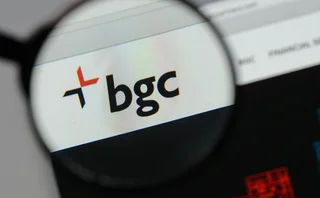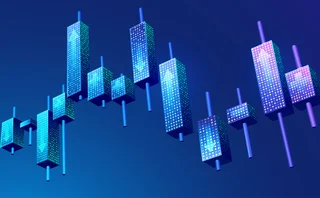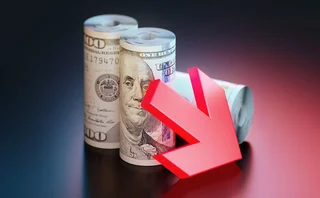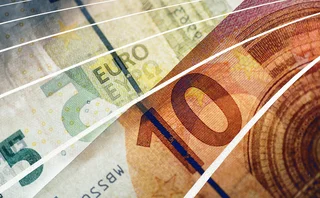
Korean ELDs fall out of favour

Volumes in Korea’s equity-linked deposit market have dropped off significantly, just months afterhitting their peak and a year after the product was approved for the country’sretail investors. And bankers reckon that volumes will continue to remain inthe doldrums, with a drop in interest rates and a surge Korean equity marketsmaking it increasingly difficult to structure equity-linked deposits with enticingupside potential.
Banks were first granted authorisation to offer equity-linked deposits (ELDs)in November last year. But after hitting a peak in February, when a total 1.55trillion won ($1.3 billion) of ELDs were sold, volumes have since dropped offto 216 billion won in June and 285 billion won in July, according to the country’sregulator, the Financial Supervisory Service (FSS).
Bankers point out that the recent gains in the Kospi stock index, which has surgedby more than 30% since the end of March, has made investors reluctant to enterthe equity markets, with many feeling that further upside may be limited. Meanwhile,a drop in interest rates has increased the cost of zero coupon bonds – whichaccounts for the capital guarantee element for these deposits – meaningthat there is less money to spend on the option component. Consequently, thedeposits have either had extremely low participation rates or else incorporatecallable or knock-out features to reduce the cost of the option. Deposits launchedto date have ranged from plain vanilla call spreads to exotics such as digitalsand step-up digital options.
Nonetheless, one Seoul-based banker at a Korean bank says that, while sales havedropped, there is still room for growth as retail investors have been badly burntby investments in equities and options, and so are looking for products thatoffer principal protection. According to the FSS, retail investors made a total273.6 billion won in losses in futures and options trading in the first six monthsof the year. “Investors don’t want to put their money into stocksor options directly, and they are also not satisfied with the current interestrate level,” the banker says. “But they also want to share in theupside when the market moves up, so I think the market is still good for ELDs.”
However, James de Castro, managing director and head of equity-linked tradingfor Asia-Pacific at Merrill Lynch in Hong Kong, adds that, with the Korean three-monthcertificate of deposit rate dropping from over 5% in March to around 3.8% currently,issuers will either have to extend the maturity of the deposits or put some ofthe investor’s principal at risk to increase participation levels. “Ifyou ask if it is sustainable with exactly the current rates and exactly the currentrules, then it’s difficult to see it growing very aggressively,” hesays. “But the pressure’s going to be on either the product to changeor for the maturities to be longer.”
Meanwhile, another banker at a domestic bank in Seoul, comments that some investorshave begun switching their money into deposits linked to foreign exchange orbonds. “We’re seeing interest for different kinds of indexes, whetherthat’s Kospi, forex, or bonds,” he says. SF
Only users who have a paid subscription or are part of a corporate subscription are able to print or copy content.
To access these options, along with all other subscription benefits, please contact info@risk.net or view our subscription options here: http://subscriptions.risk.net/subscribe
You are currently unable to print this content. Please contact info@risk.net to find out more.
You are currently unable to copy this content. Please contact info@risk.net to find out more.
Copyright Infopro Digital Limited. All rights reserved.
You may share this content using our article tools. Printing this content is for the sole use of the Authorised User (named subscriber), as outlined in our terms and conditions - https://www.infopro-insight.com/terms-conditions/insight-subscriptions/
If you would like to purchase additional rights please email info@risk.net
Copyright Infopro Digital Limited. All rights reserved.
You may share this content using our article tools. Copying this content is for the sole use of the Authorised User (named subscriber), as outlined in our terms and conditions - https://www.infopro-insight.com/terms-conditions/insight-subscriptions/
If you would like to purchase additional rights please email info@risk.net
More on Markets
Sustainable bond markets miss an options trick
A derivatives mindset could boost lagging sustainability-linked market, argues climate think-tank
FX dealers face end-of-day trading stress from T+1 shift
Experts say switch to using overnight swaps could be “problematic” and lead to wider spreads
Consortium backs BGC’s effort to challenge CME
Banks and market-makers – including BofA, Citi, Goldman, Jump and Tower – will have a 26% stake in FMX
Natixis turns on the taps in flow trading
French bank boosts flow business, balancing structured solutions capabilities
Rethinking P&L attribution for options
A buy-side perspective on how to decompose the P&L of index options is presented
Buy side would welcome more guidance on managing margin calls
FSB report calls for regulators to review existing standards for non-bank liquidity management
Citi halves swaptions book with US retail funds
Counterparty Radar: Mutual funds and ETFs cut exposures by 22% in Q4
Who’s winning the €STR futures race? Depends how you measure
CME, Eurex and Ice all claim to be leading, but experts say it’s too early to pick a winner







